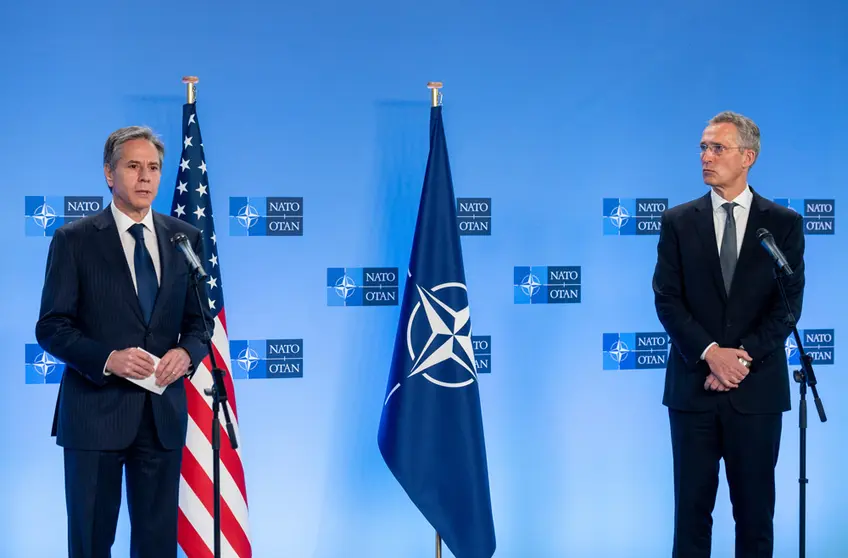NATO has deployed four new battle groups across Bulgaria, Hungary, Romania and Slovakia, part of the alliance's response to the Russian invasion of Ukraine, NATO Secretary General Jens Stoltenberg announced on Wednesday.
NATO already has battle groups in Estonia, Latvia, Lithuania and Poland. Each of them consist of about 1,000 troops, but have been significantly strengthened since the beginning of the war in Ukraine.
"This means that we will have eight multinational NATO battle groups all along the eastern flank from the Baltic to the Black Sea," Stoltenberg said ahead of an extraordinary NATO summit scheduled for Thursday.
"We face a new reality for our security, so we must reset our deterrence and defence for the longer term," he said.
The announcement came as US President Joe Biden departed on a trip to Brussels to meet NATO and EU leaders in a show of trans-Atlantic unity, seeking to bolster attempts to pressure Russia into ending its invasion of Ukraine, which is now a month old.
There will be a special meeting of NATO leaders, a G7 summit and an EU leaders' summit. Talks will centre on how to support the Ukrainian people, how to further punish Russia and the long-term changes necessary to ensure Europe's security.
A proposal to permanently strengthen the eastern flank, for example in the form of brigades supplemented by air and naval cover, is still on the table.
Such a step would likely increase tensions with Russia because it would mark a violation of the NATO-Russia Founding Act.
The act, agreed by both sides, commits NATO to refraining from deploying permanently "substantial combat forces" in the eastern territories of the alliance, among other things.
NATO Chief: 'China spreading lies'
"Russia has walked away from the NATO-Russia Founding Act - they have violated again and again," Stoltenberg said, referring to Russia's war in Georgia in 2008, its illegal annexation of Crimea in 2014 and its invasion of Ukraine on February 24.
China's role in the Ukraine conflict will also be discussed at the NATO summit, with Stoltenberg saying there were fears that Beijing could provide "material support" to Russia.
"China has provided Russia with political support, including by spreading blatant lies and disinformation, and allies are concerned that China could provide material support for the Russian invasion," he said.
He added that leaders would "call on China to live up to its responsibilities as a member of the UN Security Council, refrain from supporting Russia's war efforts, and join the rest of the world in calling for an immediate peaceful end to this war."
Ukrainian President Volodymyr Zelensky is to address Biden and the 29 other NATO leaders via video link. The Ukrainian leader continues to push for the establishment of a no-fly zone to protect his country from Russian airstrikes, though NATO has repeatedly dismissed the request.













